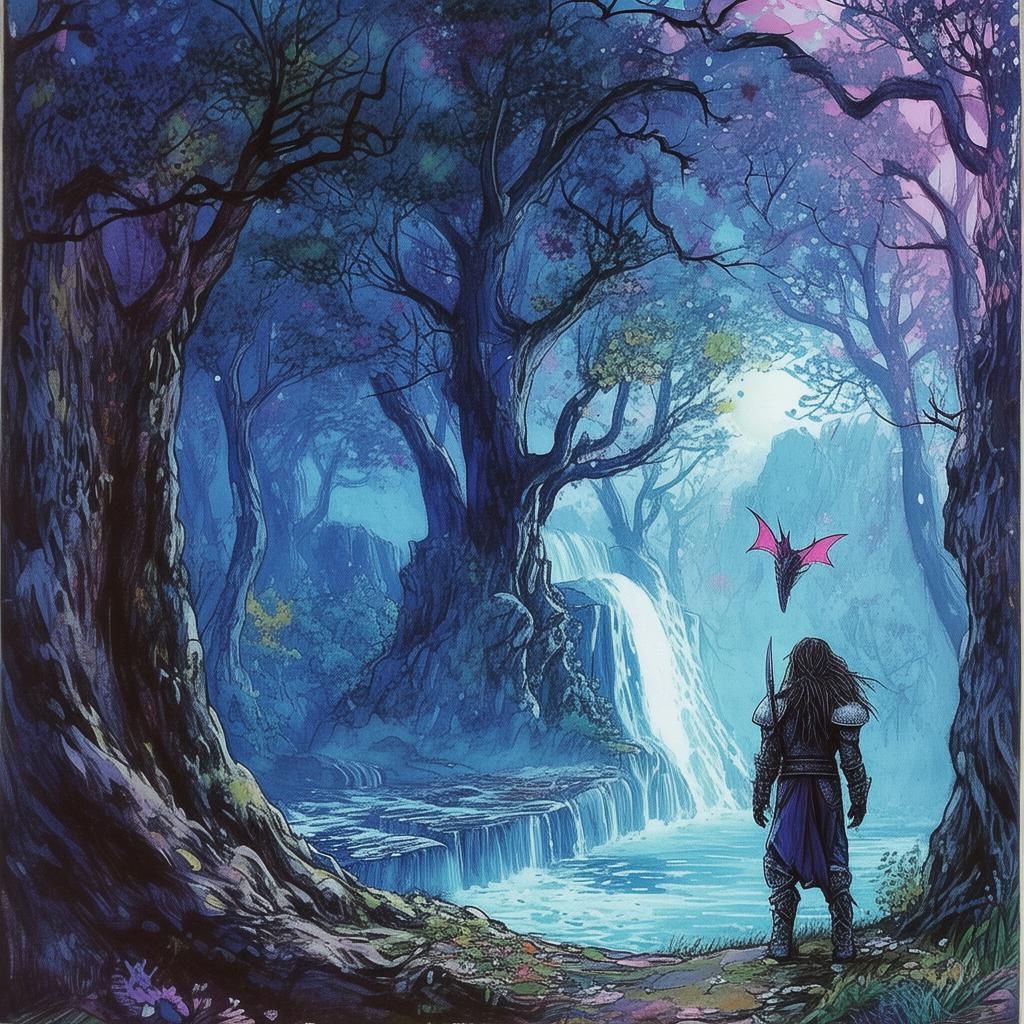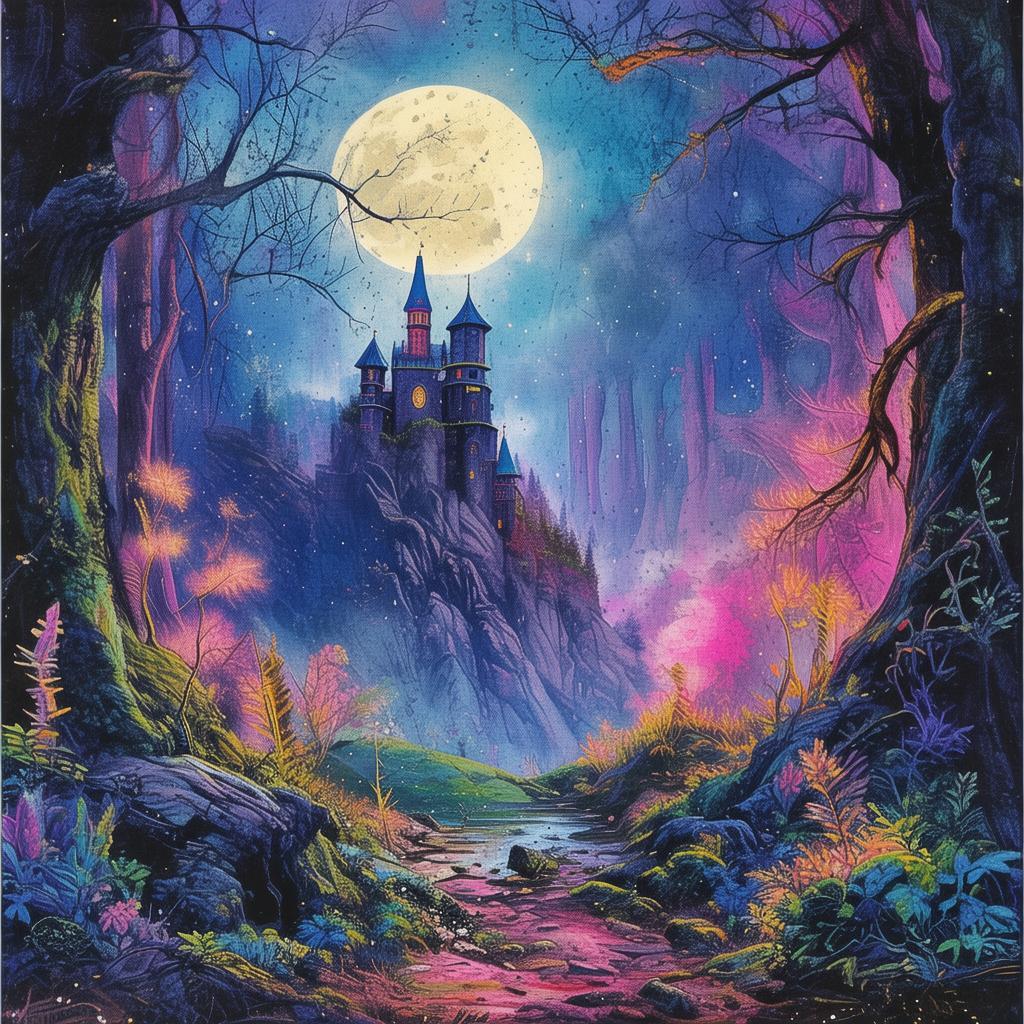The Divide of the Poets: The Tale of Two Verses
In the ancient city of Qin, where the ink of history was as thick as the mud of the Yellow River, there lived two poets whose verses were as sharp as the swords of the warriors who roamed the land. Their names were Yu and Wei, and their rivalry was as old as the mountains that surrounded the city.
Yu was known for his melodic, soothing verses that could calm the stormiest of seas. His words were like a gentle breeze that whispered tales of love and peace. Wei, on the other hand, was a master of the harsh, rhythmic poetry that could stir the soul and ignite the passions of the most stoic of listeners. His verses were like a storm that raged with the fury of the heavens.
The tale of their rivalry began when they were young and the city was in the midst of a great festival celebrating the harvest. Yu and Wei were both present, each hoping to showcase their talents to the crowd. But as the festival progressed, it became apparent that their rivalry was not just a contest of words, but a battle of spirits.
One evening, as the moon hung low in the sky, casting its silver glow over the city, Yu and Wei were summoned to the palace of the Emperor. The Emperor, a lover of poetry himself, had heard of their rivalry and wished to see it resolved once and for all. He had tasked them with writing a verse that would embody the essence of the city of Qin, its people, and its history.

Yu, with a heart full of warmth, began to pen a verse that spoke of the beauty of the land, the strength of its people, and the enduring love that bound them together. Wei, however, saw this as an opportunity to challenge Yu's dominance and to prove that his poetry was not just as beautiful as Yu's, but also as powerful.
As the night wore on, Yu's verse took shape, a tapestry of harmony and tranquility that seemed to flow from the very essence of the city. But Wei's verse was a tempest, a whirlwind of emotion and intensity that threatened to uproot the very foundations of the city.
The Emperor, sitting before them, read both verses aloud, his eyes reflecting the struggle between the two poets. Yu's verse was beautiful, a soothing balm to the soul, but Wei's verse was a storm that raged with the fury of the heavens. The crowd was divided, some cheering for Yu's verse, others for Wei's.
The Emperor, with a sigh, decided that neither verse could truly represent the city of Qin. He declared that both poets had the power to bring forth beauty and fury, and that the true essence of the city lay in the balance between them.
In the days that followed, Yu and Wei continued to write, each trying to outdo the other. Their verses became a part of the city's lore, a testament to the power of poetry and the strength of rivalry. But as the years passed, something began to change.
Yu, who had once been the more popular of the two, began to see the value in Wei's poetry. He realized that while his verses could soothe, Wei's could inspire. And Wei, in turn, began to appreciate the beauty of Yu's work, understanding that it was not just about the power of the words, but about the power of the message.
One day, as they stood before the Emperor once more, Yu and Wei decided to join forces. They wrote a verse that was a blend of their styles, a harmony of the melodic and the rhythmic. When the Emperor read it aloud, the crowd was silent, then erupted into cheers. This was the verse that truly represented the city of Qin, a testament to the balance between beauty and fury, peace and passion.
From that day forward, Yu and Wei were no longer rivals. They were friends, each learning from the other, each growing as poets and as people. Their verses continued to be celebrated, not just for their beauty, but for the message they conveyed: that the true power of poetry lay not in the dominance of one style over another, but in the harmony of both.
And so, the tale of Yu and Wei became a legend, a story that would be told for generations to come, a reminder that the greatest poetry is not written in the silence of solitude, but in the symphony of shared voices.
✨ Original Statement ✨
All articles published on this website (including but not limited to text, images, videos, and other content) are original or authorized for reposting and are protected by relevant laws. Without the explicit written permission of this website, no individual or organization may copy, modify, repost, or use the content for commercial purposes.
If you need to quote or cooperate, please contact this site for authorization. We reserve the right to pursue legal responsibility for any unauthorized use.
Hereby declared.









